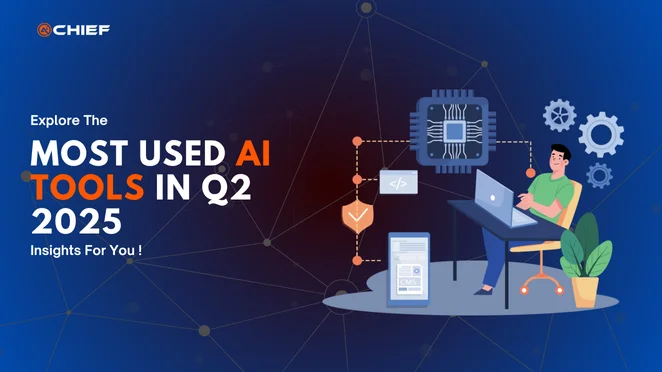
How to Select the Best AI Voice API in 2025
Nova Hawthrone
November 26, 2025
Finding the right AI tool can be tricky. With so many options launching every week, it helps to know which ones people are using. That’s why we dug into tool usage, search behavior, and engagement data across Q2 2025 to uncover the most popular picks.
This list is powered by The AI Library, a curated AI tools directory that helps users discover, compare, and try the best AI apps for content, development, and automation.

If you’re building with AI or just curious what’s trending, this report will save you hours of trial and error.
We used data from three key signals:
A. Search activity and clicks on the tools listed on The AI Library.
B. Number of times users bookmarked or revisited tool pages.
C. External community buzz, including mentions on developer forums, Reddit, and LinkedIn.
All rankings are based on usage trends from April through June 2025.
Still the most-used LLM across the board. Developers, students, marketers, and founders rely on it for brainstorming, drafting, coding, and customer support. It remains the go-to tool for conversational AI, and it helps with everything from writing emails to coding. Its continuous updates and versatility keep it at the top of the list for a wide range of users.
Google's advanced text-to-video model that creates high-definition video clips with cinematic control. Its trend is due to its ability to generate clips over a minute long and maintain visual consistency. It’s being used by filmmakers, educators, and marketing teams to create stunning visuals from text prompts.
Known for producing high-quality, artistic images from text prompts. Its reputation for creating visually stunning and unique graphics keeps its user base strong and engaged.
An emerging creative AI used for generating animated visuals and storyboards. Ideal for content creators working on storytelling, anime, or pitch visuals.
This tool specializes in creating marketing copy, blog posts, and other written content. It remains a favorite for its focus on brand voice and marketing-oriented features.
A powerful multimodal AI model that understands text, images, and code. It's holding strong because of its deep integration with Google's ecosystem and its strong analytical capabilities.
An AI-powered search engine that provides direct answers with cited sources. It is popular among researchers and professionals for its accuracy and detailed explanations.
Integrated within ChatGPT, this tool from OpenAI makes it easy to generate creative images from conversational prompts. Its ease of use and accessibility keep it a top choice.
This AI tool joins your meetings to take notes and create transcripts. Its growing popularity is due to its ability to automate meeting summaries and action items, saving teams valuable time.
A long-standing leader in writing assistance, Grammarly now includes advanced AI features to improve clarity, tone, and style. Its widespread adoption in both professional and personal contexts continues.
AI tools are software applications that use artificial intelligence to perform tasks that typically require human intelligence. This can include things like understanding language, creating images, analyzing data, and automating workflows. They are designed to increase productivity and creativity.
Based on Q2 2025 data, AI chatbots and writing assistants remain the most popular categories due to their broad applications in daily tasks. However, specialized tools for image and video generation are also extremely popular and continue to grow rapidly.
AI tools can help your business in many ways, such as automating repetitive tasks to save time, generating marketing content to attract customers, providing data-driven insights for better decision-making, and improving customer service with AI-powered support.
Yes, many of the most popular AI tools, including ChatGPT, Canva, and Descript, offer free versions with robust features. These are a great way to get started and see how AI can benefit you without any initial cost. For more options, you can browse directories like The AI Library.
When selecting an AI tool, consider its specific function and whether it meets your needs, its ease of use and learning curve, its integration capabilities with other software you use, and its pricing structure to ensure it fits your budget.